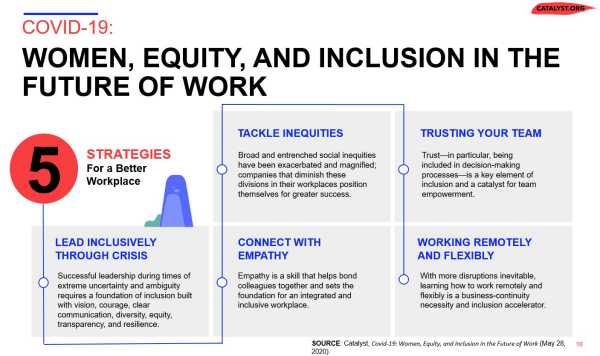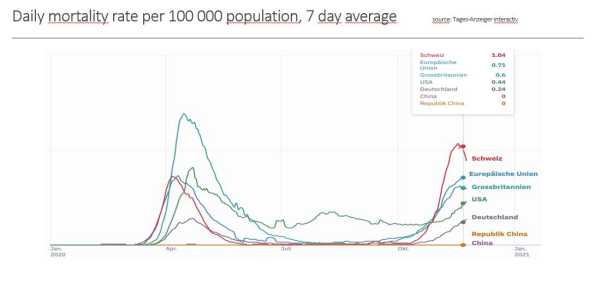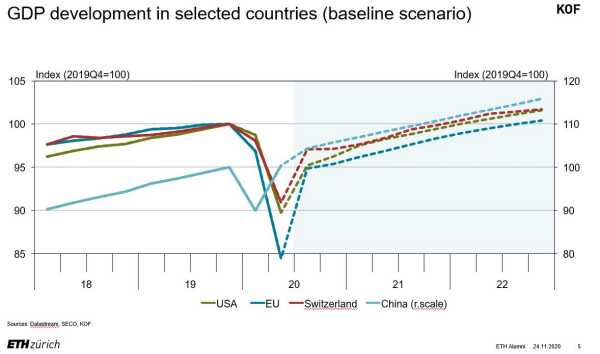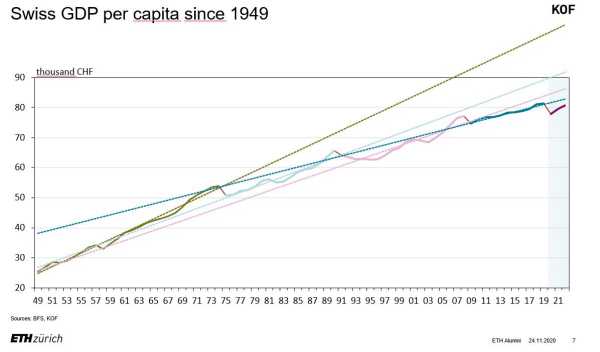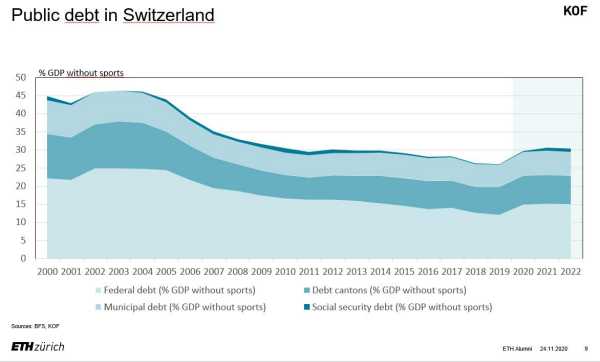Seeing the light at the end of the tunnel
Alumni Connect
On Tuesday, 24 November 2020, 40 people joined the Autumn Conference on Economy, Health and Democracy in Times of Crisis. Three speakers gave insights into their daily work and presented their perceptions based on recent analyses and surveys in their corresponding fields of expertise. The ensuing discussions showed the general need to clarify open questions and exchange personal experiences.
The introduction outlined the general situation everyone faces now: for many months, we have been in a state of emergency worldwide. Everyone is continuously trying to adjust to the ever-changing situation and the circumstances affect us. The impact, however, varies from person to person depending on individual situations. The decisions taken by political leaders, but also by the organisations we work for, crucially affect how we live and behave.
Social context is another decisive factor that affects how we feel about the current situation. As many people struggle to see the big picture and classify the information we receive from the government and scientific experts, the conference served as a platform to share knowledge and personal experiences. On that basis, the audience entered into a dialogue with the experts and discussed the current situation from economic, social and political perspectives.
We are in a deep moral crisis

external page Republik editor and journalist Daniel Binswanger held the first presentation. He started with a fundamental question: Who are we? By means of quotes and graphics, he stated the reasons for his conclusion that we are in a deep moral crisis. For Binswanger, who has been commenting on political activities in Switzerland for decades, what happened during the crisis was totally unexpected. A graphic comparing the daily mortality rate per 100’000 inhabitants between Switzerland and other countries showed how the Swiss numbers increased exponentially and far exceeded the international average. A quote by the famous Serbian-American economist Branko Milanović suggested that it would have been expected of China to give priority to the economy and neglect human lives whereas the United States of America would focus on saving human lives; however, what happened was in fact the opposite. The same applies for Switzerland, but due to the government’s procrastination, our country outperformed the United States of America in terms of sacrificing human lives in the name of economics. How is that possible in a country with such a long humanitarian tradition?
As Binswanger sees it, factors for Switzerland’s failures include: 1. A lack of preparedness and lack of experience (in comparison with China, for example, which did much better with its early lockdown). 2. A false assessment of the epidemiological situation. 3. Its federalism. 4. The lack of political will and lack of collective agency. And it is not over yet: this phase of denial, anger and bargaining is still going on. Political leaders are not assuming responsibility for failures, which would be necessary and helpful at this point. So what does Binswanger suggest? Even if all this comes as an unpleasant surprise, we are discovering and learning something right now. It is time to do some soul-searching. With the vaccine, we will enter a new, collective phase, in which we will have to face reality and start dealing with the mistakes of the recent past.
Personal growth through empathy and self-education

Allyson Zimmermann is the Executive Director at external page Catalyst Europe, an organisation that helps companies promote diversity and inclusion in the workplace. Several studies and surveys have shown that COVID-19 has amplified gender, race, ethnic and socioeconomic disparities. This means that people are affected very differently and on many levels by the pandemic. Depending on their individual situations, they have to carry several burdens. One includes an “emotional tax”, which refers to biases at work that fundamentally affect their sleep and productivity. Zimmermann points out that the suffering and impact varies from crisis to crisis. The economic crisis, for example, hit men harder than women. The pandemic, however, affects women much more and among them especially women of colour. Surveys also show that parents and younger households are being more affected, in part due to feelings of anxiety and loneliness, but also due financial setbacks and decreased access to growth opportunities.
A Catalyst survey across gender and race states that most participants are optimistic about the changing workplace in the wake of COVID-19. They believe that workplaces will accelerate gender equity. However, employees are more sceptical than employers regarding the companies’ commitments to take action. Zimmermann presented five concrete strategies how to foster a team culture that includes and respects everyone: 1. Lead inclusively through crisis. This involves vision, courage, clear communication, and resilience among other factors. 2. Tackle inequities. Studies show that companies that diminish divisions in their workplaces have greater success. 3. Connect with empathy. Bonding among colleagues is fundamental for an integrated and inclusive workplace. 4. Trusting your team. Being included in decision-making processes fosters team empowerment. 5. Working remotely and flexibly. In the face of disruptions, this becomes crucial for business continuity and serves as an inclusion accelerator. Fundamental for leaders is to give space for employees by asking simple questions such as: How are you doing today? Zimmermann has experienced it herself with her international team. By offering a platform, employees may open up and speak about their personal struggles. As a team, solutions can be found that help everyone to be productive and do a good job. Zimmermann firmly believes that is it high time that people talked about their well-being and that through self-education, everyone can learn to be more empathetic and inclusive.
There is reason for optimism

The last one to speak was Jan-Egbert Sturm. He is Professor of Applied Macroeconomics at ETH Zurich, Director of the Swiss Economic Institute (KOF) and heads the expert team on Economics in the Swiss National COVID-19 Task Force. He emphasised that we have to look first what happens in the rest of the world to understand what is going on in Switzerland due to its dependence. Sturm confirmed Binswanger’s statement that China did well economically because they focused on saving lives. The United States of America and Switzerland focused on the economy and sacrificed many human lives, which eventually had an effect on their economy. However, by presenting a series of graphics on the GDP (Gross Domestic Product) development in selected countries, Swiss GDP per capita since 1949 and the public debt in Switzerland, Sturm showed that despite the losses, Switzerland is doing very well – at least from an economic point of view. The pre-crisis trends of the Swiss GDP have never recovered; each crisis meant a loss of momentum. Nevertheless, Switzerland has a stable and slow governmental system, which works in favour of the country’s economy. Sturm agrees with Binswanger that the way and speed in which decisions were made in the first wave were appropriate for a severe threat such as a pandemic. In the second wave, the Swiss government went back to its old, federalist manner of deciding, which has had dramatic consequences for society.
The three speakers all share an optimistic view of the near future. They all believe that we are in the middle of a learning process. Even though the current situation appears dark and frightening, we are in an economically stable country and can develop our own strategies to become more resilient and empathetic, to connect with other people and to exchange to lighten at least a little bit the individual burdens we each carry.
